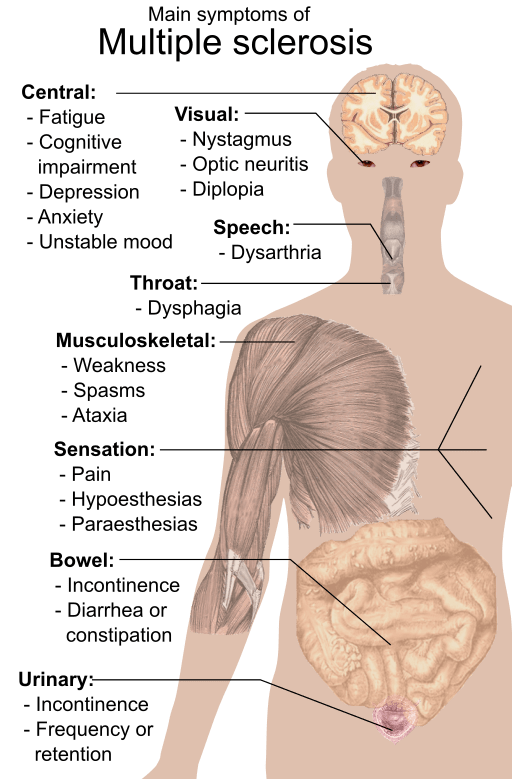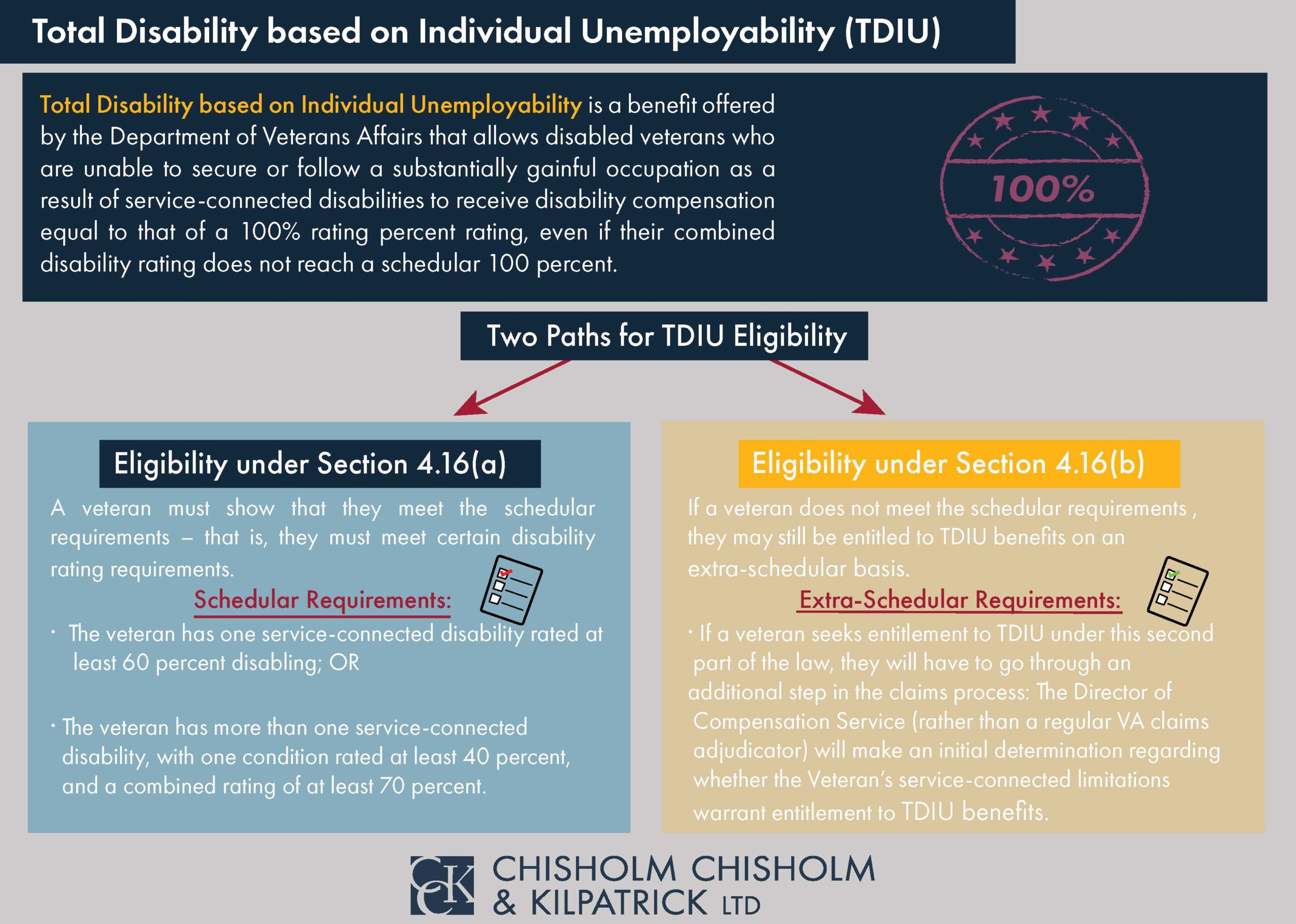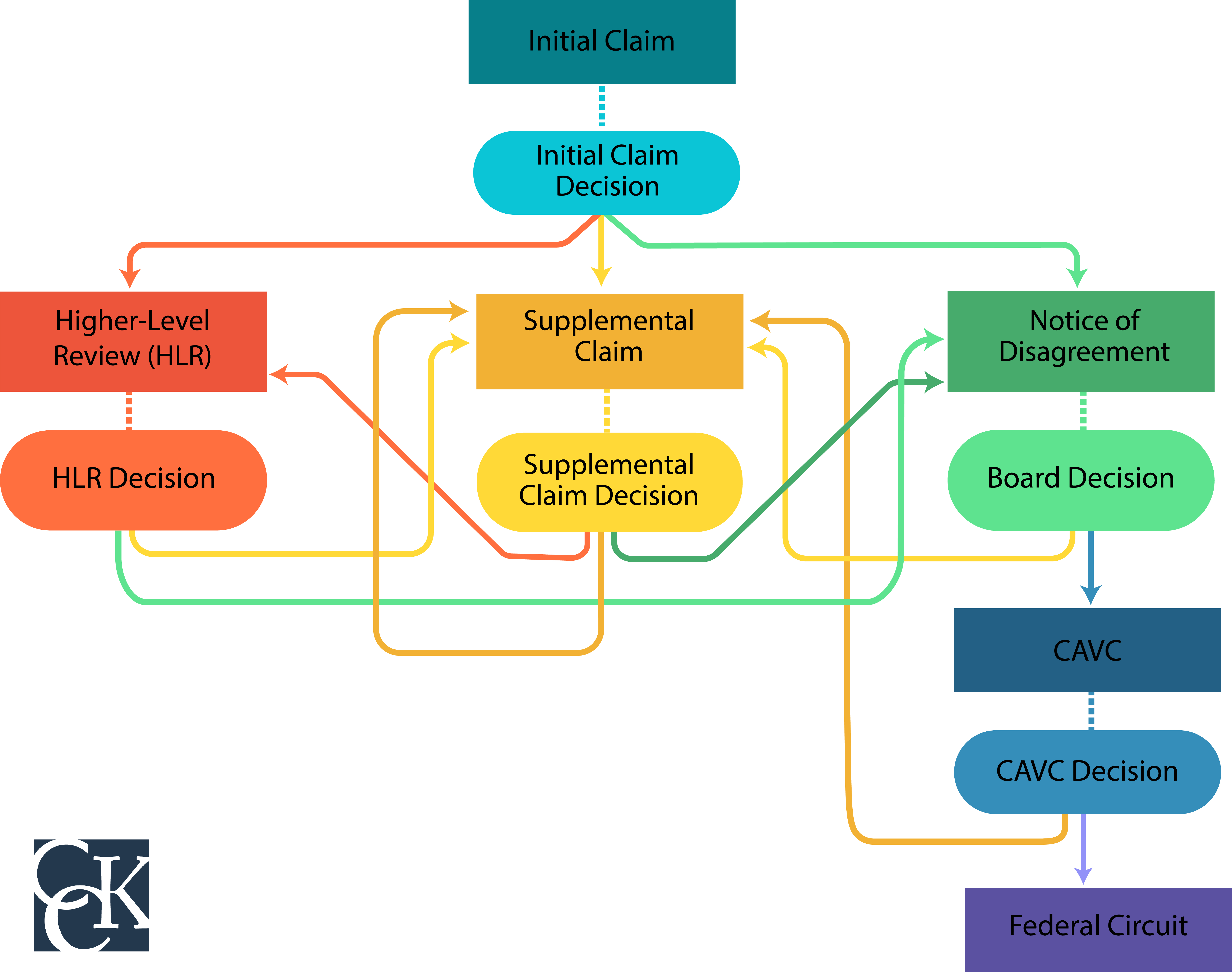Multiple Sclerosis: Veterans with MS and VA Disability Benefits

CCK Law: Our Vital Role in Veterans Law
What is Multiple Sclerosis (MS)?
Multiple Sclerosis (MS) is a disease of the central nervous system in which your immune system attacks the protective myelin sheath that covers nerve fibers. This interferes with the transmission of nerve signals between the brain, spinal cord, and the rest of the body. Veterans with MS may be entitled to service-connected disability benefits through VA.
Signs and Symptoms of MS:
 The signs and symptoms of MS can vary drastically from person to person, and can often make MS difficult to diagnose. Some of the more common signs and symptoms are:
The signs and symptoms of MS can vary drastically from person to person, and can often make MS difficult to diagnose. Some of the more common signs and symptoms are:
- Vision impairment;
- Cognitive impairment;
- Muscle stiffness;
- Tingling and/or numbness;
- Urinary difficulties such as incontinence or urinary frequency;
- Bowel incontinence or constipation;
- Weakness in the arms and/or legs;
- Loss of balance;
- Fatigue;
This is not an exhaustive list. There are numerous signs and symptoms of MS that range in severity and chronicity, some of the more uncommon symptoms can include tremors, headaches, seizures, and speech difficulties.
VA Service Connection for Multiple Sclerosis (MS)
When filing a claim for service connection for multiple sclerosis, the veteran will need to demonstrate a connection between their military service and their multiple sclerosis. The veteran will also need to submit a diagnosis. In total, the veteran will need to submit the following to VA:
- A diagnosis of multiple sclerosis;
- An in-service event, illness, or injury; and
- A nexus linking the veteran’s in-service occurrence with their multiple sclerosis.
To support the veteran’s claim for service connection, the veteran may submit lay evidence. Lay evidence, or lay statements, can be written by the veteran or anyone who knows the veteran and can speak to their condition. Importantly, lay evidence may also be submitted by fellow service members.
Presumptive Service Connection
Presumptive service connection removes the need for a veteran to provide a nexus between their in-service event and their current disability. This means that veterans do not need to submit evidence proving that their condition was caused by service, because the presumption provides the nexus.
Multiple Sclerosis can be service-connected on a presumptive basis if it manifests to a degree of 10 percent disabling or more within seven years after separation from service. This means that veterans with symptoms of MS during their military service, or within seven years after an honorable discharge from the military, do not have to prove a nexus, or link, between their military service and their MS.
VA assigns this seven-year presumptive period because MS can be very difficult to diagnose based on the number of different signs and symptoms. Additionally, it can take years for symptoms of MS to manifest to a noticeable degree, often delaying a formal diagnosis.
If you were diagnosed with multiple sclerosis after seven years following your separation from the military, you may still become service-connected for your multiple sclerosis. If you are treated for symptoms of MS within the seven years following your discharge, you will often need to get an opinion from a medical professional regarding how the symptoms for which you received treatment are related to your current diagnosis of multiple sclerosis.
Compensation and Pension (C&P) Examinations for Multiple Sclerosis
If a veteran files a claim for multiple sclerosis, VA may request a Compensation and Pension exam, or C&P exam. To request an exam, VA may send the veteran a letter or call them. It is important to follow through with scheduling this exam, and to attend, otherwise VA could deny the veteran’s claim.
The exam will usually be performed by a VA physician or a VA contracted physician. Before the exam, the examiner will review the veteran’s c-file. This will contain any documentation that has previously been submitted to VA, as well as the veteran’s medical and service records.
The veteran may also use a DBQ, or Disability Benefits Questionnaire, to bolster their claim. A Disability Benefits Questionnaire is a form created by VA so that the veteran may address important aspects of their condition, such as symptoms, severity, possible causes, and relation to other disabilities. The veteran may also have their private doctor fill out a DBQ for them. In claims for multiple sclerosis, DBQs can be helpful because a private doctor who treats the veteran’s condition can provide more detailed insight into the veteran’s condition.
VA Ratings for Multiple Sclerosis
If you are awarded service connection for multiple sclerosis (MS), VA will automatically assign a minimum rating of 30 percent under 38 CFR § 4.124a, Schedule of Ratings – Neurological Conditions and Convulsive Disorders, Diagnostic Code 8018. From there, VA will rate any residuals of the condition based on their own independent diagnostic codes. As a result, veterans often end up with a much higher rating than the initial 30 percent minimum.
Again, veterans can submit evidence to show the disabling effects of their residuals and how these residuals impact their remaining functional ability. For example, submitting lay statements that address reportable and observable symptoms and the gradual worsening of the condition can be very helpful in establishing a higher rating.

Multiple Sclerosis and Burn Pit Exposure
Open-air burn pits are large areas of land that were used as a means of waste disposal on American bases in places such as Iraq, Afghanistan, and Djibouti after September 11, 2001. The practice was effective in reducing large quantities of waste, but the pits emitted plumes of toxic smoke. The following materials have been linked to military burn pits:
- Human waste
- Medical waste
- Ammunition
- Paint
- Plastic
- Rubber
- Styrofoam
- Other toxic chemicals
- Spoiled food
- Lubricants
- Petroleum
As these wastes were burned, harmful chemicals and toxic fumes were released into the atmosphere. As such, many veterans of Operation Enduring Freedom (OEF) and Operation Iraqi Freedom (OIF) have developed health conditions from hazardous exposures caused by these burn pits.
Burning hazardous materials and chemicals in open-air pits emits toxic substances and carcinogens that can cause a host of diseases, some severe and even deadly. Multiple sclerosis is one of the conditions that has been linked to burn pit exposure.
Research continues to be done to investigate what other conditions may be caused by burn pit exposure, but the full extent of the harm burn pits can cause is not yet known. However, research has indicated that one of the known chemical compounds released by burn pits includes the dioxin called TCDD which was also found in Agent Orange.
While VA does acknowledge certain conditions as being eligible for presumptive service connection if the veteran can prove exposure to Agent Orange, VA has not established a presumption for veterans exposed to burn pits. Since there is no presumption, VA adjudicates burn pit claims on a case-by-case basis.
VA does not have a consistent approach to deciding these claims, so lay evidence from veterans is key to winning burn pits claims. Often, VA does not have a way of proving veterans were near burn pits, so statements from the veteran themselves or buddy statements can help verify exposure.
TDIU, Special Monthly Compensation, and Multiple Sclerosis
Veterans who are prevented from working as a result of their multiple sclerosis may be able to receive a monthly VA disability called total disability based on individual unemployability, or TDIU. This benefit compensates veterans at the 100 percent rating level, even if their disability rating may be less than that.
There are generally two pathways to become eligible for TDIU:
- 38 CFR § 4.16a (“Schedular”) – For this form of TDIU, the veteran must have:
- One condition rated at minimum 60 percent ORTwo conditions that can be combined to reach 70 percent, where one condition is at minimum 40 percent
- 38 CFR § 4.16b (“Extraschedular”) – This form of TDIU is for veterans who may not be able to achieve the ratings necessary for schedular TDIU but are still unable to obtain substantially gainful employment on account of their conditions. In this instance, the veteran must prove that their condition is uniquely hinders their ability to obtain substantially gainful employment and therefore should not be rated on the standard disability rating criteria.
If a veteran is having difficulty getting a higher rating for their multiple sclerosis, they may be able to receive compensation at the 100 percent rating level through TDIU.
Secondary service connection may help a veteran to achieve the criteria needed to qualify for TDIU. Depression is a common side effect of MS and veterans may be eligible for service connection for their depression as secondary to their service-connected MS.
Additionally, veterans with Multiple Sclerosis may be entitled to Special Monthly Compensation (SMC) if they need assistance with activities of daily living and self-care, or are permanently housebound due to their service-connected condition.
Healthcare Benefits and Multiple Sclerosis
Regardless of whether a veteran is service-connected for MS, VA will provide healthcare services for veterans with MS throughout their life from the date of diagnosis.
Medical care for eligible veterans could include specialty care visits with a neurologist, rehabilitation, therapy, and forms of medication. VA also has an Extended Care program, for which veterans who have been diagnosed with multiple sclerosis may be eligible. Programs in the Extended Care program include:
- Skilled Home Health Care—This benefit provides short-term care for veterans following a hospital stay.
- Homemaker and Home Health Aide Care—This benefit provides a caregiver who can come to the veteran’s home to assist them.
- Respite Care—This program pays for care for a short time when family caregivers need a break. Personal Emergency Response Systems—Personal emergency response systems can help veterans who need assistance in an emergency.
- Veteran Directed Care—Veteran-directed care allocates funding for veterans to hire a caretaker.
- Medical Foster Homes—Medical foster homes provide housing for veterans in a non-institutional setting.
National MS Society
The National MS Society (NMSS) is an official partner of VA. Staff called “navigators” from NMSS can help provide additional information, resources, and support to veterans who have multiple sclerosis. These navigators can also help veterans understand the benefits and programs eligible to them.
Was Your VA Claim Denied? Contact CCK For a Free Consultation
CCK has decades of experience successfully representing disabled veterans on their VA disability claim appeals. Call us today for a free consultation. Let us fight for the disability benefits you deserve.
About the Author
Share this Post



